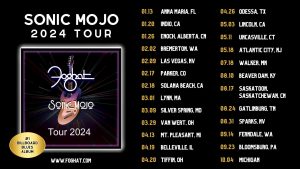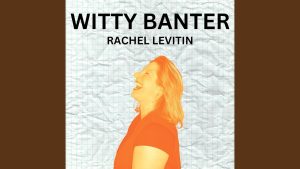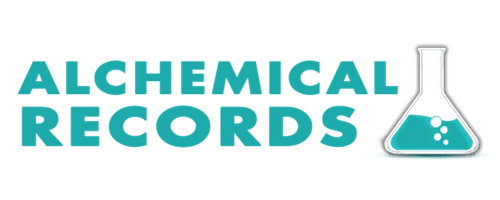
By Eric Althoff
This reading of Alchemical Records content provides a multimedia experience for our audience while increasing the accessibility of our content to persons with hearing loss, low vision, dyslexia, physical or motor disabilities, or are on the autism spectrum.
Samuel Prather’s musical influences have been many, but none was as formative as the minister of music at his childhood church.
“Through him I got a lot of modern gospel stuff, so Kirk Franklin, Fred Hammond, etc.,” Prather said recently. It was later that he also found James Brown, Stevie Wonder, and Michael Jackson—but even those would pale in comparison to the jazz he uncovered, particularly artists such as Herbie Hancock, McCoy Tyner, Branford Marsalis and Joshua Redman.
“I think that D.C.’s jazz scene is really underrated,” Prather said. “You’d be hard-pressed to find a better jazz scene other than New York.”

Growing up, Prather both played in church and took piano lessons. He also joined his high school jazz band and took up percussion in the D.C. Youth Orchestra. So proficient in music did he become that now, in addition to piano and drums, he also plays guitar and bass.
Prather eventually pursued a master’s at Howard, where he met Eliot Seppa and Elijah Jamal Balbed, who would eventually join his ensemble, called the G.O! 4tet. Charles Wilson rounds out the quartet on drums. “They were there for undergrad, so I’m the old man,” Prather said with a laugh.
“I tend to gravitate toward multi-instrumentalists [and] band leaders,” Prather said of his bandmates, all of whom have their own musical side projects. “It’s nice to have people that…when you write a big band chart, it makes it a lot easier to explain some of these concepts.”
The G.O.! 4tet has played at the Kennedy Center’s Millennium Stage as well as the Ivy City Smokehouse, where they collaborated with Akua Allrich on tunes that Prather had written. Prather says that he needs his bandmates to be able to roll with his compositions, as well as the improvisational nature of live jazz.
“It’s very hard to get people that understand the funk and soul side, and also can kind of play the difficulty of the straight-ahead side as well,” he said. “We just get in there and [do] our best to survive my tunes.”
Prather admits freely to being extremely particular when it comes to music writing. He’ll typically start off with working a drumbeat or bassline into the Reason composition program at his computer. Then he builds the song from there, but leaves space for his bandmates to add solos later on.

“I have a horrible habit of micromanaging, which technology allows me to enable, unfortunately,” Prather said. “So I record the stuff that is going to sound ‘bad’ if it’s not real—fake saxophones and fake trumpets don’t really appeal to me very much. I usually just re-record the horns and the upright bass and guitars. Everything kind of already exists in my mind before I bring in anybody to record.”
In addition to heaping praise on D.C.’s jazz scene, Prather said that the capital city fosters a musical culture that melds influences from many sources. And he believes that D.C. has an edge over other cities.
“D.C. has a very unique blend of different styles and profitability if you’re willing to kind of learn to play those different styles—versus some cities that are like ‘This is a jazz town’ [or] ‘This is a soul town, a blues town,’” Prather said. “D.C. is anything that you want. And if you can show up on time and learn the music, you can have a really diverse and rich career.”
Several of Prather’s favored venues haven’t survived the COVID-19 pandemic. He mourns for two favorites, Cafe Nema and the vaunted Twins Jazz, which shut their doors along the U Street corridor. Another casualty, pre-COVID, was the Bohemian Caverns.
“U Street in general, you used to be able to, on a Saturday night, walk from 9th Street all the way to 15th Street, and there was a band pretty much every few doors,” Prather recalls of the famed corridor so famous for its soundscape.
However, despite so many venue closures, Prather remains hopeful he and his group will soon be able to return to Blues Alley and the Strathmore. “They just have this really buttery and delicious Steinway,” he said of the performance space in North Bethesda.

Furthermore, the G.O! 4tet has maintained an ongoing stint at the 18th Street Lounge. The old location in Dupont closed this summer, but the group now plays at the new location in Shaw, where it has been rechristened Twelve After Twelve. Prather and his group play there most Friday and Saturday nights.
And even with the stabilizing of the pandemic seemingly within sight, Prather said that the shutdown—temporarily or permanently—of so many D.C. clubs hasn’t affected him as much as some other artists. For one, he maintains a consulting business where he helps fashion visual content for clients—and which enabled him to continue feeding his four children during the height of the pandemic in 2020.
“When I got the news that lights were basically going to go off for basically an indefinite amount of time, I just pivoted more,” he said. “There’s all the pluses and minuses that come from working at home and being a family man. It’s definitely a lot of growth and takes time to figure out priorities.”
The end of 2021 saw Prather and the G.O! 4tet playing at CapitolBop. As their spring heats up, he hopes to return to more festival gigs. In the meantime, the band will continue their weekend residency at Twelve After Twelve.
“This is really allowing all of us to stretch out in these tunes,” Prather said, “and we’re having a great time doing so.”
For music, merchandise, and more information on upcoming shows, visit SamuelPrather.com.

A native of New Jersey, Eric Althoff has published articles in “The Washington Post,” “Los Angeles Times,” “Napa Valley Register,” “Black Belt,” DCist, ScreenComment.com and Luxe Getaways. He produced the Emmy-winning documentary, “The Town That Disappeared Overnight,” and has covered the Oscars live at the Dolby Theater. He lives in Fredericksburg, Virginia, with his wife, Victoria.

Recent Articles March 21st. A day that I will always think of amazing album releases. DC-based musician, producer, and singer-songwriter, Rachel Levitin, released Witty Banter

Alchemical Records is a Washington, D.C. based music publication. We cover the Washington, D.C., Baltimore and Richmond, VA metro area music scenes, including band interviews, articles about your favorite musicians, new music and concert dates.